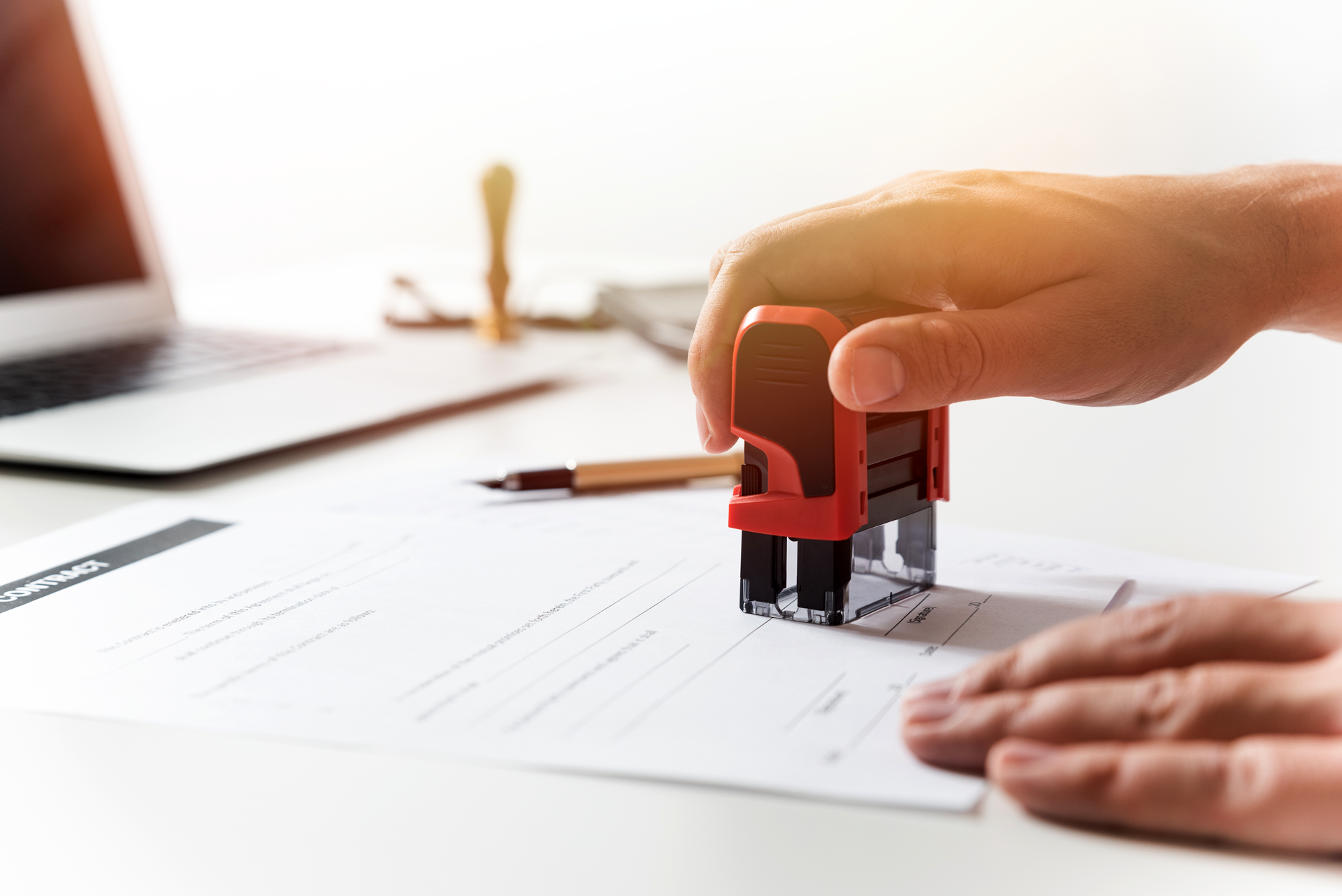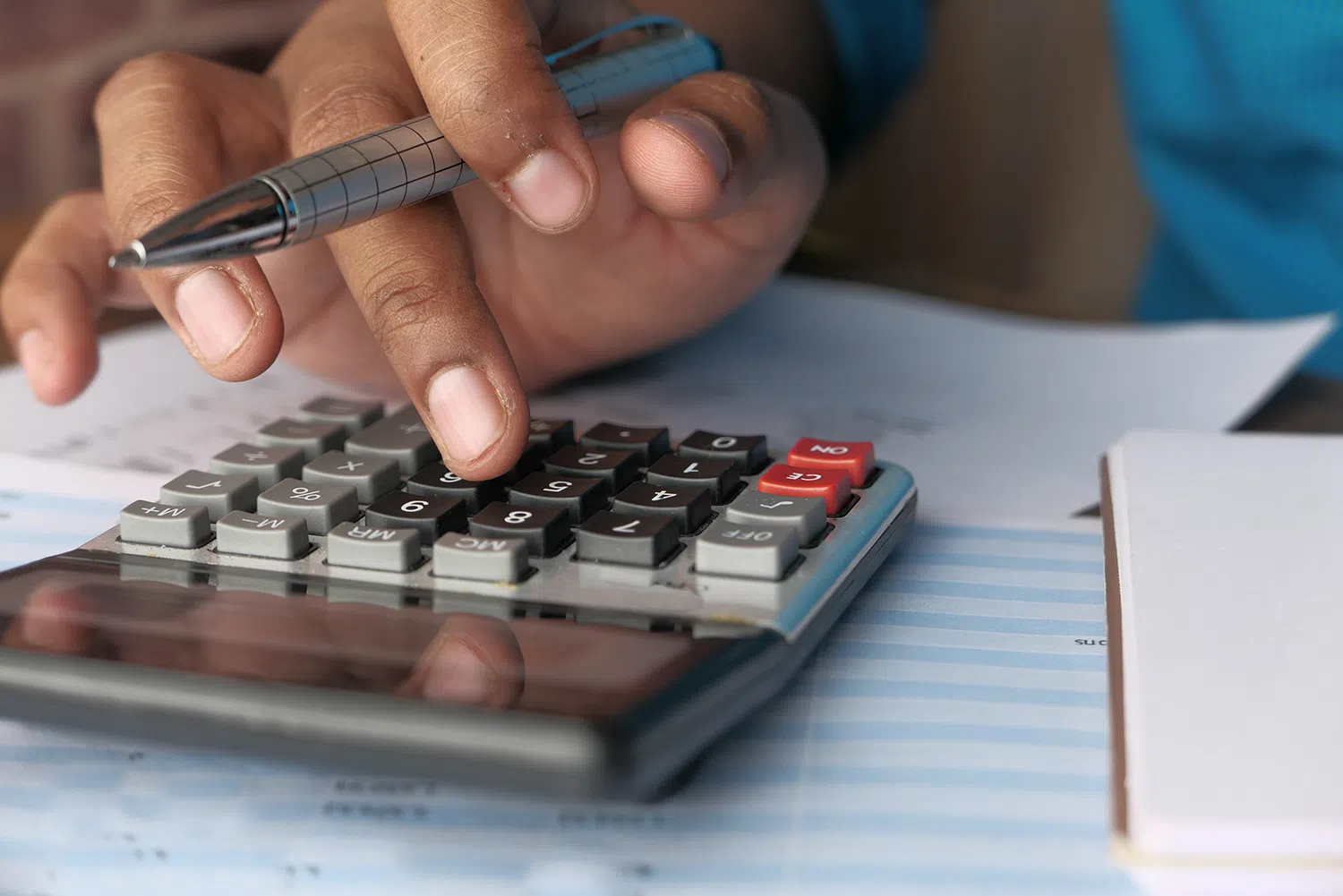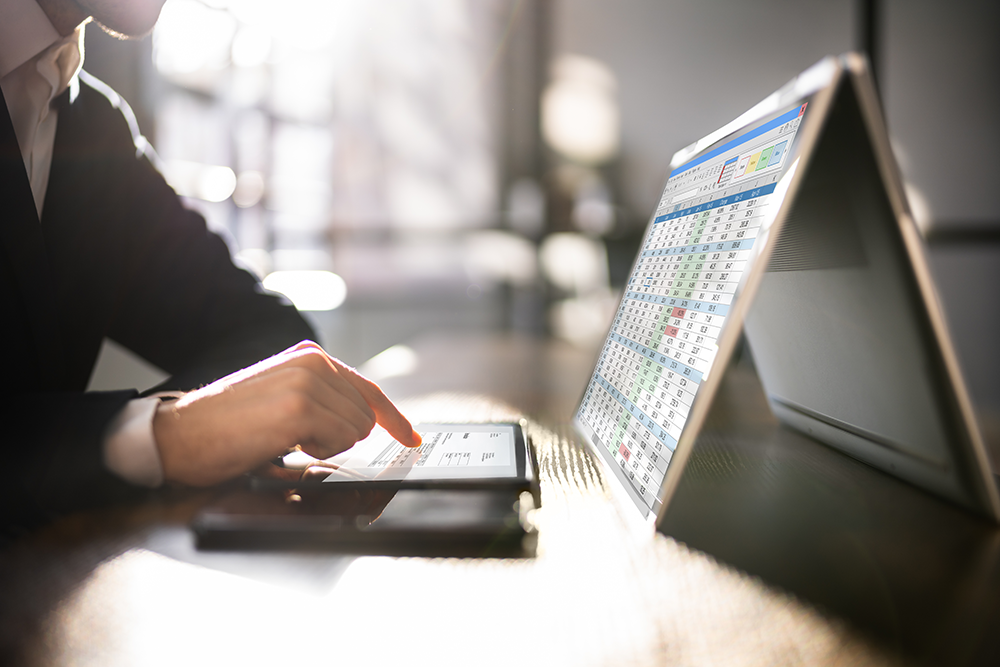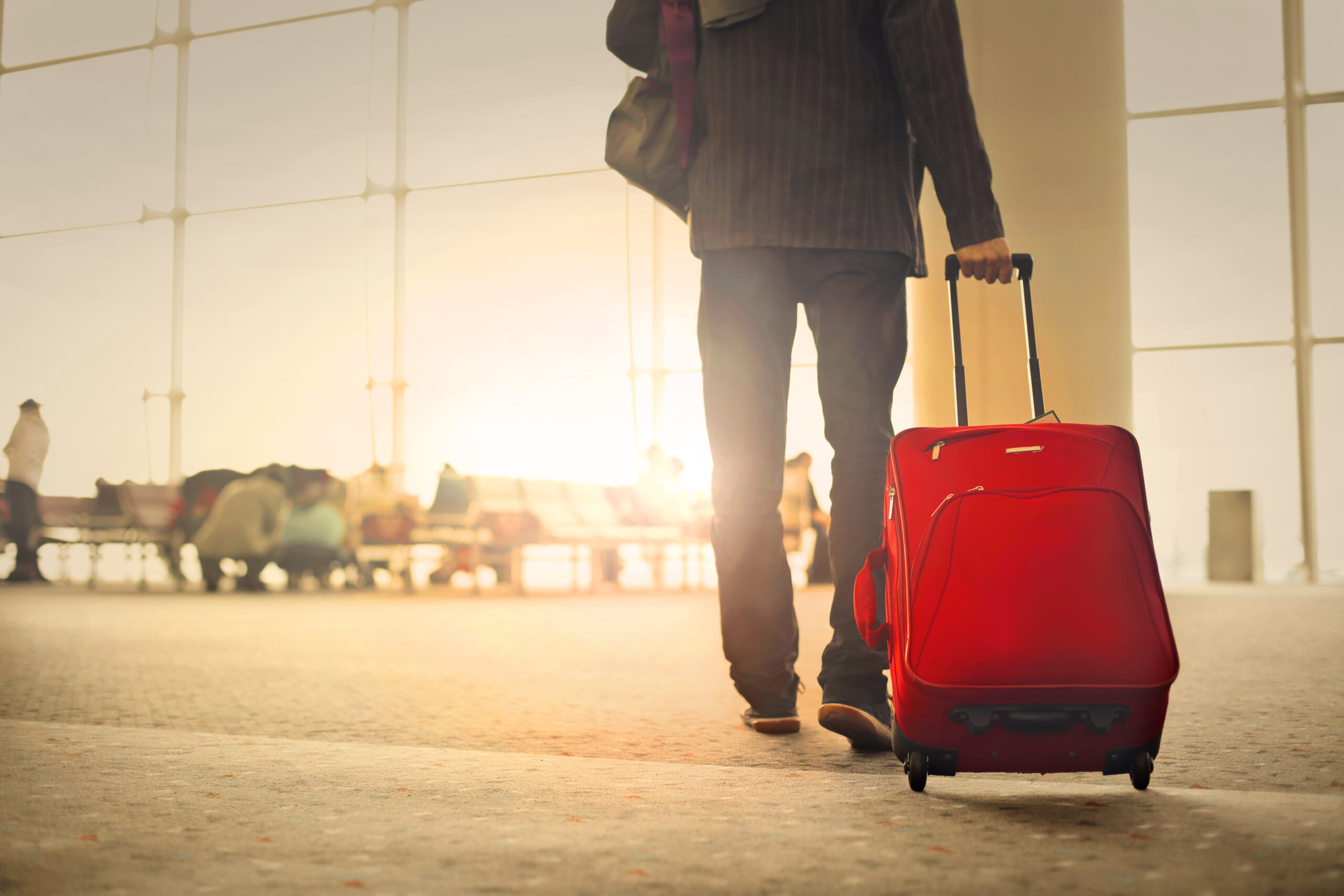Travel Expense Report for Business Trips: Working Time, Daily Allowance, Mileage Allowance & Co
Published: December 18, 2024
Reading Time: 10 min
Contents
- What is a Business Trip?
- What is a Travel Expense Report?
- Travel Expense Accounting in Austria and Germany: an Overview
- Changes 2025: What will Change for Travel Expenses in Austria?
- Types of Travel Expenses and their Reimbursement
- Automated Processing of Travel Expense Reports
- Efficient and correct: Accounting for Business Trips
Inhalt
- What is a Business Trip?
- What is a Travel Expense Report?
- Travel Expense Accounting in Austria and Germany: an Overview
- Changes 2025: What will Change for Travel Expenses in Austria?
- Types of Travel Expenses and their Reimbursement
- Automated Processing of Travel Expense Reports
- Efficient and correct: Accounting for Business Trips
Every business trip involves a large number of receipts. Meals, flight tickets or hotel costs: it is important to account for business trips correctly, as this is the only way to claim all expenses for tax purposes. Incorrectly or incompletely claimed travel expenses often lead to delays in reimbursement, legal problems or tax disadvantages for the company.
The year 2025 will bring numerous changes for business trip accounting in Austria. We will show you what will change from 1.1.2025 and how you can optimize your travel expense report.
What is a Business Trip?
What constitutes a business trip is regulated by law in Austria. A business trip is when an employee is commissioned to carry out professional tasks or further training outside the place of work.
Travel between home and work is not a business trip. Unless the employee works so far away from his or her permanent place of residence that a daily return is not reasonable (more than 120 km away).
Examples of business trips within Austria:
- Customer meeting in Bregenz: A sales employee travels from Innsbruck to Bregenz to discuss the annual planning with customers.
- Training in Salzburg: An employee takes part in a three-day training course in Salzburg to expand her professional skills.
Examples of business trips abroad
- Conference in Frankfurt: An employee attends an international conference in Frankfurt to find out about the latest developments in the industry and to network..
- Business negotiations in London, UK: A company manager travels to London to conduct negotiations with potential business partners.
A business trip is therefore always work-related and serves business purposes. The costs can be claimed for tax purposes. A private trip, on the other hand, is for personal reasons and the costs cannot be claimed or reimbursed.
What is a Travel Expense Report?
Frequent business travelers know that various expenses are incurred on business trips, such as for meals, travel or overnight stays. This is exactly what the travel expense report is for. It is a detailed list of all costs incurred during a business trip.
Who pays the travel costs?
Employees do not have to bear the travel costs and other expenses incurred as a result of the business trip themselves; a minimum amount is borne by the employer.
Employees can reimburse the business trip:
- settle the business trip directly with the employer in the form of a travel expense report or
- claim them as income-related expenses.
If the employer covers the costs, these cannot also be claimed as income-related expenses. If only part of the costs are reimbursed, the remainder can be deducted as income-related expenses.
Self-employed persons can deduct expenses incurred on business trips as business expenses.
Travel Expense Accounting in Austria and Germany: an Overview
In both Austria and Germany, expenses incurred during a business trip can be claimed for tax purposes. In both countries, not only travel costs, but also expenses for meals and overnight stays can be deducted as business expenses. Official mileage allowances are also provided in Austria and Germany for the use of private vehicles on business trips. Another thing the two countries have in common when it comes to travel expense accounting is the deduction of additional meal expenses. This is reimbursed as a lump sum, the amount of which depends on the duration and destination of the business trip.
However, there are also some differences in the business trip accounting of the two countries. One of these differences concerns the amount of the mileage allowance.
In Germany, the mileage allowance of 0.30 euros per kilometer is lower than in Austria. In Austria, the mileage allowance will be 0.50 euros from 1.1.2025.
The two countries also differ in terms of income tax exemption. In Germany, lump sums for additional meals and overnight stays are tax-free as long as they do not exceed the maximum rates.
In Austria, daily and overnight allowances are tax-free under certain conditions and up to certain maximum rates. If the travel expenses are exempt from income tax, they are also tax-free, i.e. they are exempt from social insurance, the employer’s contribution to the family equalization fund (DB), the surcharge to the DB and municipal tax.
The cost rates for trips abroad in Austria also vary depending on the country. These expense rates must therefore be correctly taken into account in the travel expense report and payroll accounting.
The form in which travel expense reports are prepared is not regulated by law in either country. This is entirely up to the respective company. While in Austria travel expense reports are often still prepared manually using Excel or Word templates, automated travel expense reports are very common in Germany.
You can find all information on travel costs and expenses in Germany in our guide article on the legal situation regarding expenses in Germany.
Changes 2025: What will Change for Travel Expenses in Austria?
As of January 2025, there will be significant tax changes in Austria that will affect companies and employees alike. The background to this is the abolition of cold progression, which was decided in Austria in the fall of 2022.
However, the inflation adjustment will not only affect income tax rates, but also bring further tax relief in the area of payroll accounting and employee taxation. This inflation-neutral income taxation was adopted and implemented as part of the Progression Settlement Act (PrAG 2025). We will show you the specific changes brought about by this law, which came into force at the beginning of 2025:
Increase in daily allowance and overnight allowance
On January 1, 2025, the maximum amounts for daily and overnight allowances will be increased in Austria. The daily allowance will rise from 26.40 euros to 30 euros and the overnight allowance from 15 euros to 17 euros.
Mileage allowance adjustments: Car, bicycle, motorcycle
The official mileage allowance for 2025 has been increased and standardized in Austria. Regardless of whether you are traveling by car, motorcycle, bicycle or e-bike, you will receive 0.50 euros per kilometer from 1.1.2025. The mileage allowance will also be increased for passengers.
The exact details of the official mileage allowance can be found in the following table:

According to the Mileage Allowance Ordinance (BGBl II 289/2024), employees who do not receive reimbursement for travel expenses from their employer can deduct the flat-rate mileage allowance rates as income-related expenses. This means that they can claim the flat-rate amounts up to an annual limit of 30,000 kilometers.
Types of Travel Expenses and their Reimbursement
There are several types of expenses that can be incurred when accounting for business trips. We explain the different types of travel expenses and how they are accounted for:
Mileage allowance: Calculation and special features
Mileage allowance is due when business trips are made in a private vehicle. In Austria, the mileage allowance is calculated on the basis of the distance traveled and the official mileage rate. The official 2025 mileage allowance rate for cars is EUR 0.50 per kilometer. The mileage allowance covers not only the pure fuel costs, but also a share of wear and tear, insurance and other vehicle costs.
Calculation example:
Driving distance: An employee drives from Vienna to Salzburg and back for a business trip. The total distance is 580 kilometers (290 kilometers each way).
Mileage allowance rate: The official mileage allowance 2025 is EUR 0.50 per kilometer.
Calculation: 580 x 0.5 = 275 euros
Daily allowance and accommodation allowance: Maximum amounts and accounting
Meals are incurred on every business trip, for example for lunch and dinner. The daily allowance covers these additional expenses during a business trip. In Austria, the term “per diems” is also used for this.
The amount of the daily allowance depends on the duration of the business trip. For business trips of more than 11 hours, the full daily allowance is paid, which has been €30 per day since January 2025. For shorter business trips, the daily allowance is calculated on a pro rata basis, with €2.50 per hour commenced. A daily allowance is payable for business trips of 3 hours or more. For a business trip lasting 5 hours, 12.50 euros (5×2.50) are therefore due.
Employees are entitled to an overnight allowance to cover the costs of overnight stays during business trips in Austria and abroad. If the receipts for the accommodation costs are submitted to the employer, the entire costs incurred will be reimbursed. If no proof is provided, a lump sum of 17 euros per overnight stay is due.
Other costs: parking fees, public transportation, cab costs
In addition to mileage allowances, business trips may also incur other travel costs. These may include parking fees, public transport tickets, cab fares and tolls.
In addition, a number of other expenses may be incurred that are tax-deductible. Typical incidental expenses for business trips include telephone costs, internet charges and luggage insurance. Unforeseen costs may also arise during a business trip, for example for the repair of a company vehicle.
Automated Processing of Travel Expense Reports
Business trips generate many different receipts – from train or parking tickets and cab bills to meal and hotel bills. When travel expenses are settled manually, receipts can quickly be incorrectly assigned or even lost. Digital solutions simplify the entire travel expense report process. The advantages of automated travel expense accounting for companies and the self-employed are many and varied:
Why create a travel expense report at all? A travel expense report is necessary in order to document and be reimbursed for costs incurred. Travel expenses must be accounted for in accordance with legal requirements and the company’s internal guidelines. This includes recording all expenses and adhering to deadlines for the travel expense report.
How do automated travel expense reports work?
Automated travel expense reports use software solutions that scan receipts, extract data and automatically enter it into the accounting system. For example, free-com’s product offers functions for simple receipt capture via app and automatic calculation of flat rates.
Instead of having to settle the physical receipts after the business trip, they can be scanned with a cell phone as soon as they are received. From then on, everything runs automatically until payment is made to the employee.
Avoid common mistakes: Tips for the correct use of digital solutions for travel expense reports
In order to benefit from all the advantages of a digital expense report, it is important to use the software correctly. We have some helpful tips for you on how to use digital expense report solutions correctly:
- 1
Check receipts for legibility and completeness: Make sure that all receipts are complete and legible before they are entered digitally. Missing or illegible receipts can lead to problems during accounting.
- 2
Categorize receipts: Digital solutions offer the option of dividing expenses into categories such as travel expenses, meals or overnight stays. Categorize expenses correctly to ensure accurate accounting.
- 3
Provide employees with sufficient training: Make sure that all employees can use the software safely. Training reduces errors and increases efficiency.
- 4
Random checks: Despite automation, invoices should be checked regularly on a random basis to ensure that all data is recorded correctly.
- 5
Regular updates: Make sure you update the software regularly to take advantage of the latest functions and security updates.
Efficient and correct: Accounting for Business Trips
Travel expense accounting is a central component of many companies and is often time-consuming. Digital solutions save time and money by simplifying the process considerably.
Automated processes reduce the susceptibility to errors due to fewer manual entries and enable real-time accounting. The digital solution from free-com offers very user-friendly software that can be seamlessly integrated into existing systems and also enables mobile working. Employees can enter receipts using their smartphone from any location and add them to the billing process.
Implementing such digital solutions not only makes travel expense accounting more efficient, but also more transparent. Companies and employees benefit from fast processing of expense reports and a clear overview of travel expenses – enabling optimized cost control.
Do you have any questions for us?
We will be happy to advise you in a short, non-binding online appointment!





















